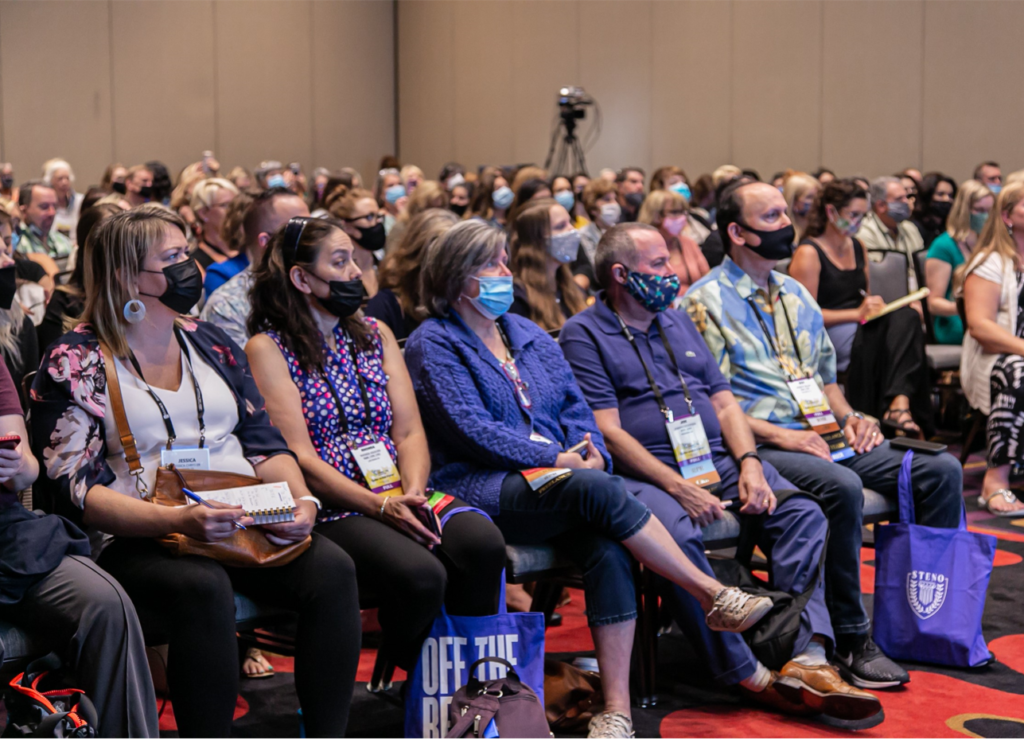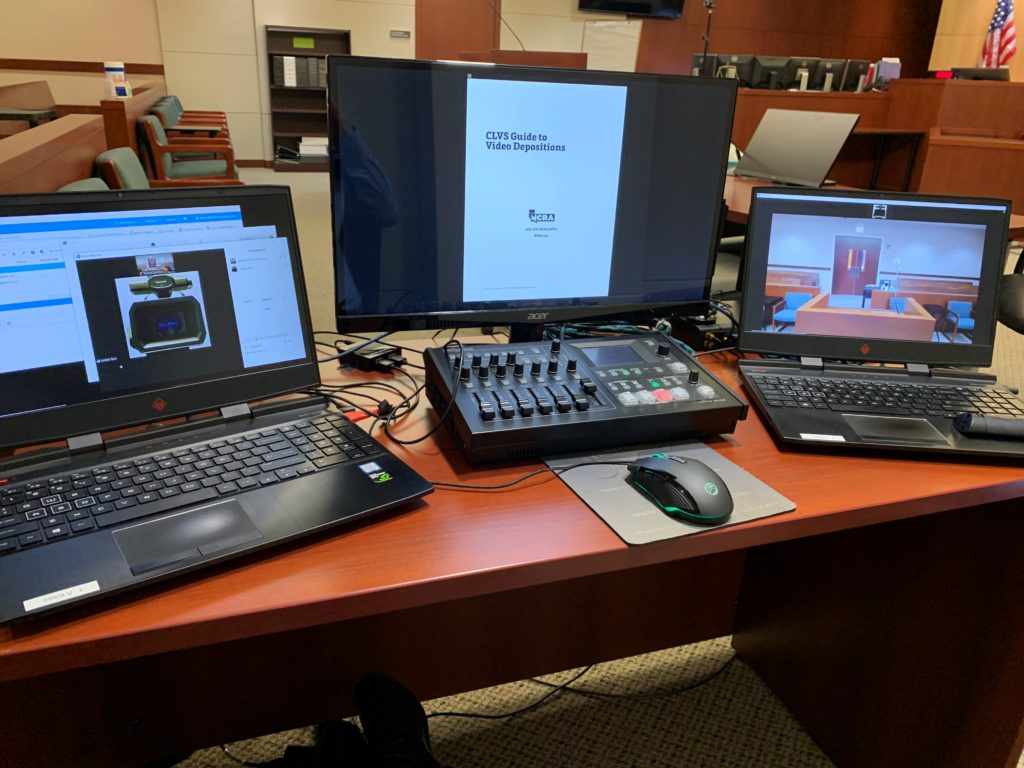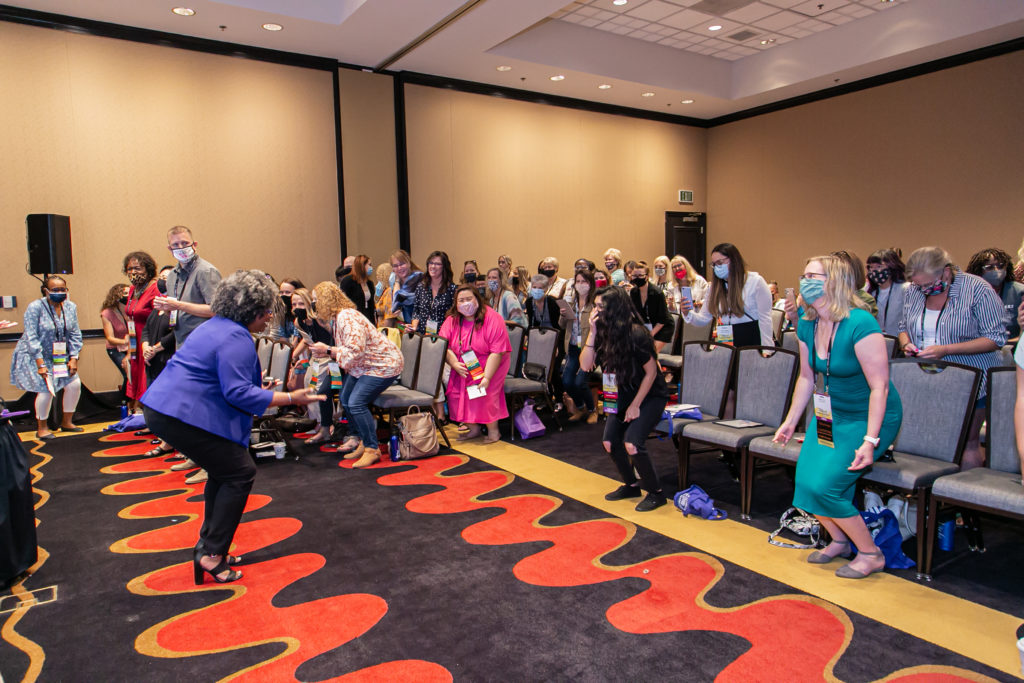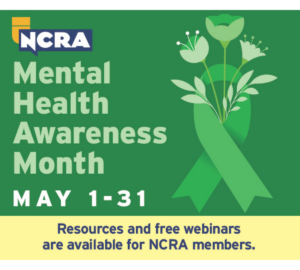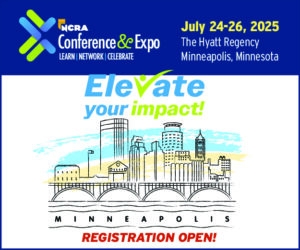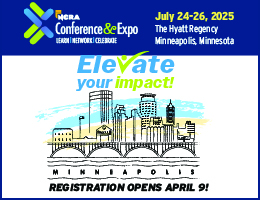The 2021 NCRA Conference & Expo in Las Vegas, Nev., held July 29-Aug. 1, offered three full days of exceptional, popular, and exciting educational sessions. If you missed the event, here are some highlights.
Ian Hardy, an internationally recognized global deposition expert and president of Optima Juris, based in Mission Viejo, Calif., presented a follow-up to his popular seminar, International Depositions 101. This year’s seminar, Breaking the Language Barrier: Best Practices for International and Interpreted Depositions, covered both the perks and challenges of taking international depositions. Hardy, who started his career as a legal videographer, covered depositions overseas for 10 years before starting his own business.
Besides the obvious perks of traveling to cover international depositions, Hardy outlined some of the legal considerations, including swearing in a witness, taking evidence, time differences, and taking depositions in certain countries. For instance, no depositions are currently allowed to be taken in Russia or China (witnesses must travel to a neighboring country), and in Germany and Japan, depositions can only be taken at the U.S. Consulate. He also covered best practices for working with interpreters. “Is it possible for a great interpreter to translate verbatim from one language to another?” Hardy asked. The answer: “Not at all. Even the best of the best. That’s why they’re called ‘interpreters.’” Hardy went on to discuss what to look for in an interpreter and important concepts in interpretation.
Many of the attendees in the room had already traveled overseas to take depositions, so they shared their stories and offered advice as well. Hardy shared that currently many jobs are being taken remotely, but for in-person depositions, the most common locations are in Asia and Europe. One rule of thumb, he noted: “If the country is not English-speaking and doesn’t already have reporters, it is more likely you will be asked to go there (or participate remotely there).”
The State of Captioning: 2021 and Beyond, presented by Cecilee Wilson, RDR, CRR, CRC; Kelly Linkowski, RPR, CRR, CRC, CPE; and Lindsay Stoker, RPR, CRC, focused on the captioners’ role in the recent NCRA Strategic Plan. Strengths are that captioners are passionate about their jobs, love the people they work with, work by a code of ethics, and are perfectionists. Even as some consumer needs are not being met because there is a need for more captioners, the speakers noted that this need is also an opportunity. In addition, when COVID-19 hit and more people started working remotely, more captioning happened remotely as well. People have become more used to captioning being available, and it will be hard for companies to go back to not offering it.
Captioners also noted that the increased work due to COVID-19 caused burnout. The presenters told attendees that, if they knew any captioners who weren’t NCRA members, it was important to encourage them to join.
Another popular session was Is Your Video Ready for Presentation in the Courtroom? It was presented by Robert Butcher, CLVS, from Lakewood, Colo.
Butcher explained in his session how he creates a video system that allows all parties, both in the courtroom and joining virtually, to see witnesses and exhibits. He also shared examples of how he organizes video equipment in courtrooms. In one example, the clerk told him no one had gotten the setup correct. He took this as a challenge and succeeded in setting up cameras and monitors to allow all parties to be able to see the exhibits. The clerk agreed after the trial that he got it right.
Butcher said one of the biggest challenges in the courtroom is access to the internet. He uses a commercial cellular router instead of getting a connection from his phone. He can also use a matrix switcher to show exhibits on different screens to different people. According to Butcher, the trick with remote witnesses is to bring them into the courtroom, show them the exhibits while not showing the jury, and then bringing both the witness and the exhibit on the screen so the jury can see them.
His advice is to access what is in the courtroom and supplement accordingly. Some courtrooms have no technology to access, and everything must be supplemented, he noted.
The audience at Digging for Goals was out of their seats and dancing along with presenter Kim Xavier, RDR, CRR, CRC, CMRS, CRI, an official state court reporter and freelancer from Arlington, Texas, as she revved them up for her energetic session. “You are going to go from ‘goal setter’ to ‘goal getter’; ‘dreamer’ to ‘redeemer,’” she told the amped-up crowd. The objectives of the interactive session were to identify one achievable goal, explore actionable steps to achieve it, and implement the first steps required to get there.
Xavier used a three-step system, first asking the audience to do a “brain dump.” As she played the theme to Final Jeopardy, attendees wrote down every idea floating around in their head, creating a giant to-do list, “closing some tabs.” Xavier, who said she had forgotten her notes in her hotel room, gave her talk on the fly using only her PowerPoint and a couple of pink sticky notes. But she did bring a Staples “Easy” button so that as the attendees were working through their steps, she could remind them: “That was easy.”
The next step in the process was to choose just one goal and write it down. Once you set a goal, she said, you have to believe in it and commit to it. Maybe you can’t see 100 percent improvement right away, she pointed out, but what if you could get 1 percent better every day for a year? That’s 365 percent better in one year.
Lastly, said Xavier, write down every single thing you can think of that could stand in the way of your achieving your goal. “Raise your hand,” Xavier instructed at one point in the session. The audience complied. “As high as you can!” she continued. Hands went a little higher as arms straightened up. “Now why didn’t anyone stand up?” she asked, as she pointed out that there is always a way to go higher.
With the surge of the delta variant of the coronavirus, and the Conference taking place on the cusp of new mask mandates in Nevada and across the country, Dr. James Elliot Carter, Jr., a pathologist, presented the timely and popular session, Coronavirus Updates and Medical Terminology for Court Reporters and Captioners. With a room full of masked attendees, Carter started off with an overview of the current state of the coronavirus pandemic, including risk factors, testing, equipment, and the latest in vaccines and their possible side effects. Carter is a professor of anatomic and clinical pathology, director of clinical pathology and laboratory medicine, and director of clinical microbiology at the University of South Alabama hospitals and clinics. He also knows a little bit about stenography, being married to Alan Peacock, FAPR, RDR, CRR, CRC.
The second half of the presentation covered the medical terminology associated with the coronavirus. Carter turned this part of the presentation into an audience participation game, dividing the room up into two halves and playing a guessing game, starting with prefixes and suffixes – a game only doctors, court reporters, and captioners could love. In closing, Carter said, “The truth is that together, we (court reporters, CART captioners, and attorneys alike) are professionals and partners in preserving the true and accurate record, and we should be deservedly proud.”
